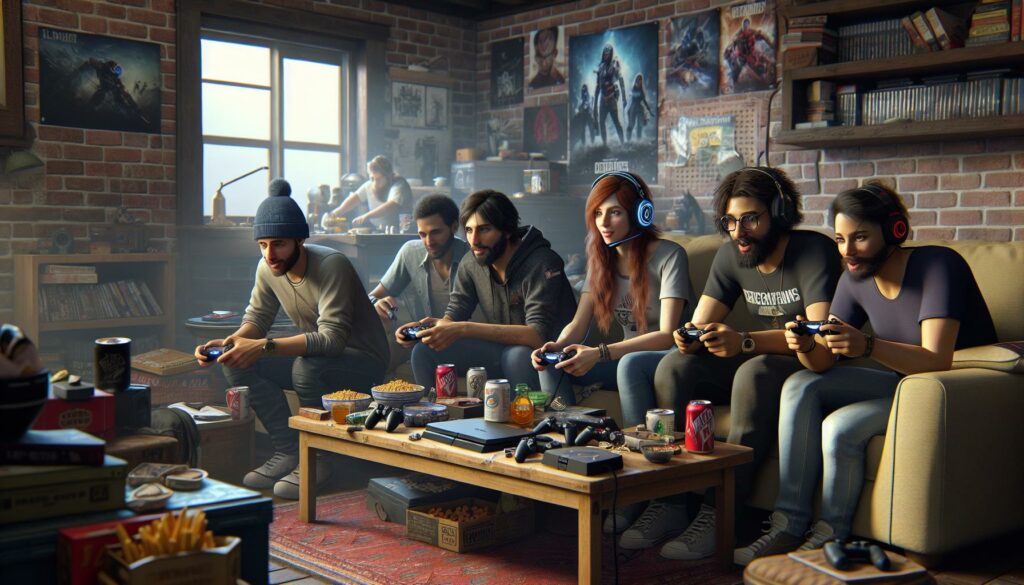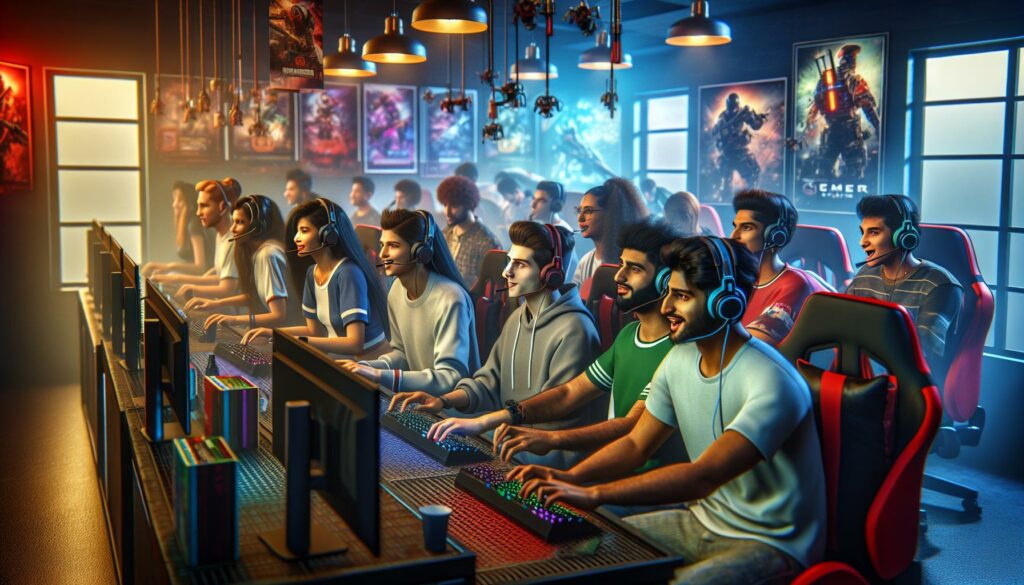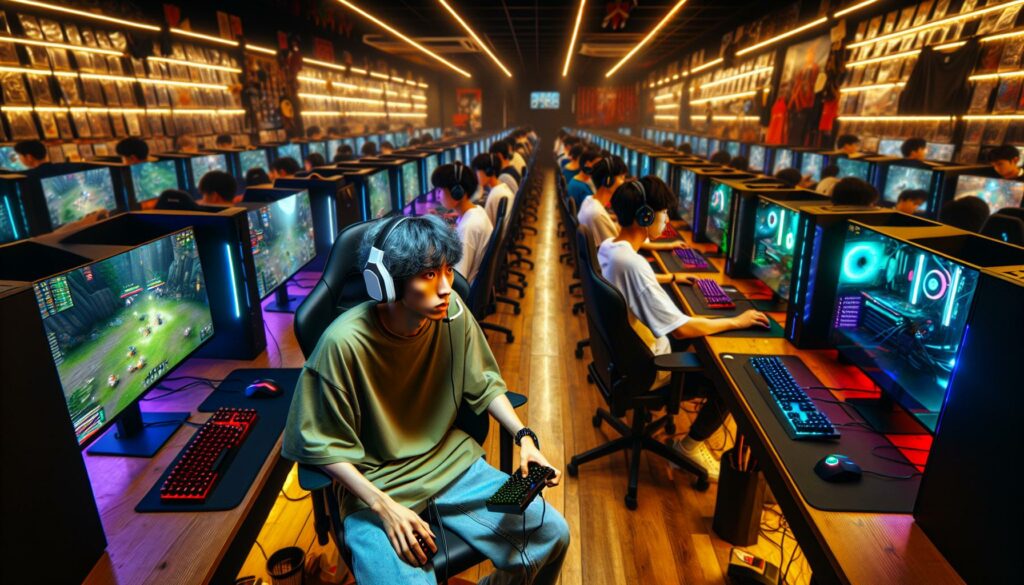The gaming world has evolved from simple pixels to stunning virtual universes, but something toxic has been brewing beneath the surface. Gaming culture, once a refuge for passionate players seeking entertainment and connection, has morphed into a cesspool of toxicity, gatekeeping, and endless internet drama.
From rage-quitting tantrums to toxic chat rooms filled with slurs, the dark side of gaming culture continues to push away both newcomers and veterans alike. While games themselves offer incredible experiences, the community surrounding them often feels like a battleground where enjoyment takes a backseat to ego and exclusivity. It’s a world where “git gud” replaces genuine help, and where gaming credentials are scrutinized with the intensity of a criminal investigation.
I Hate Gaming Culture
Gaming communities exhibit widespread toxicity through harassment, discrimination, and cyberbullying. Online multiplayer platforms report 3 in 4 players experiencing verbal abuse during gameplay sessions.
Competitive gaming environments foster aggressive behaviors:
- Racial slurs appear in 65% of competitive match chats
- Gender-based harassment targets 59% of female players
- LGBTQ+ gamers face targeted abuse in 88% of public voice channels
The monetization of gaming creates additional friction points:
- Pay-to-win mechanics divide player bases
- Microtransactions generate social pressure
- Premium content creates status hierarchies
| Toxic Behavior | Frequency in Gaming Sessions |
|---|---|
| Hate Speech | 74% |
| Griefing | 68% |
| Team Sabotage | 52% |
| Doxxing Threats | 23% |
Social media amplifies these issues through:
- Coordinated harassment campaigns
- Public shaming of new players
- Toxic influencer behavior normalizing abuse
- Echo chambers reinforcing negative attitudes
Gaming platforms’ moderation systems struggle with:
- Limited resources for report reviews
- Inconsistent enforcement of rules
- Ban evasion through multiple accounts
- Challenges in cross-platform coordination
These systemic issues create barriers for marginalized groups entering gaming spaces. Community-led initiatives face resistance from established toxic elements who view exclusionary behavior as traditional gaming culture.
Toxicity and Harassment in Online Gaming
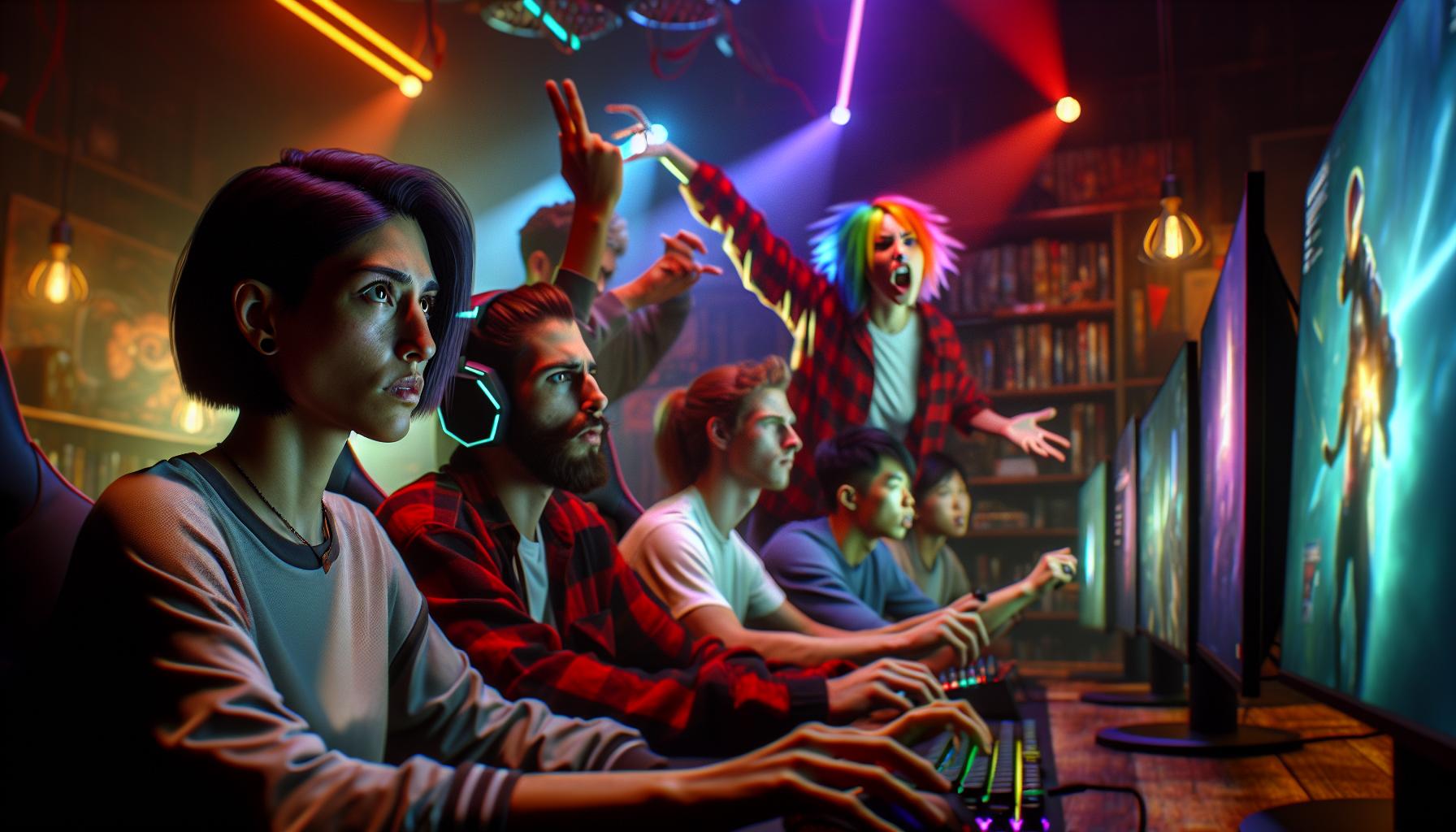
Online gaming spaces harbor widespread toxicity with 75% of players reporting verbal abuse during gameplay. The pervasive nature of harassment creates hostile environments that disproportionately affect marginalized communities.
Impact on Female and Minority Gamers
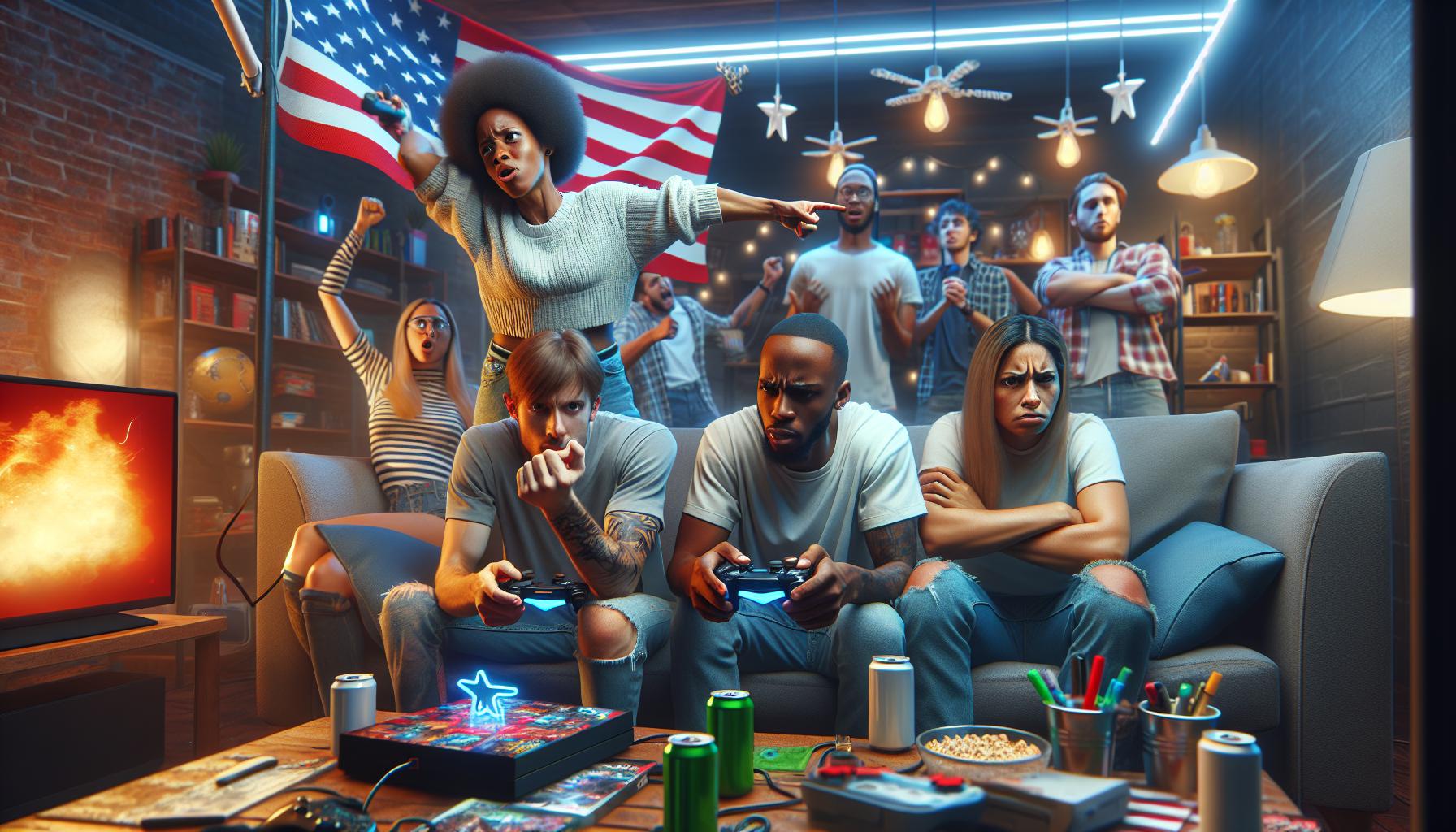 Female gamers face targeted harassment in 59% of online matches, ranging from sexist comments to explicit threats. LGBTQ+ players experience even higher rates of abuse, with 88% reporting harassment in public voice channels. Minority gamers encounter racial slurs in 65% of match chats, leading many to hide their identities or avoid voice communication entirely. This systematic discrimination forces marginalized players to create private gaming groups or abandon certain game genres altogether. Studies show that 41% of female gamers use gender-neutral usernames while 35% of minority players mute voice chat to avoid harassment.
Female gamers face targeted harassment in 59% of online matches, ranging from sexist comments to explicit threats. LGBTQ+ players experience even higher rates of abuse, with 88% reporting harassment in public voice channels. Minority gamers encounter racial slurs in 65% of match chats, leading many to hide their identities or avoid voice communication entirely. This systematic discrimination forces marginalized players to create private gaming groups or abandon certain game genres altogether. Studies show that 41% of female gamers use gender-neutral usernames while 35% of minority players mute voice chat to avoid harassment.
Competitive Gaming’s Hostile Environment
Competitive gaming amplifies toxic behavior through intense pressure to perform. Players face team sabotage in 52% of ranked matches when performance expectations aren’t met. Rage quitting affects 68% of competitive games, disrupting team dynamics and match quality. Voice chat monitoring reveals aggressive language in 74% of high-stakes matches, including death threats and personal attacks. Top-tier players often normalize toxic behavior through streaming platforms, reaching millions of viewers. Automated reporting systems catch only 23% of harassment incidents due to context-dependent nature of abuse. Players who report toxicity face retaliation in 45% of cases, creating a cycle of hostility.
Gatekeeping and Elitism Among Gamers
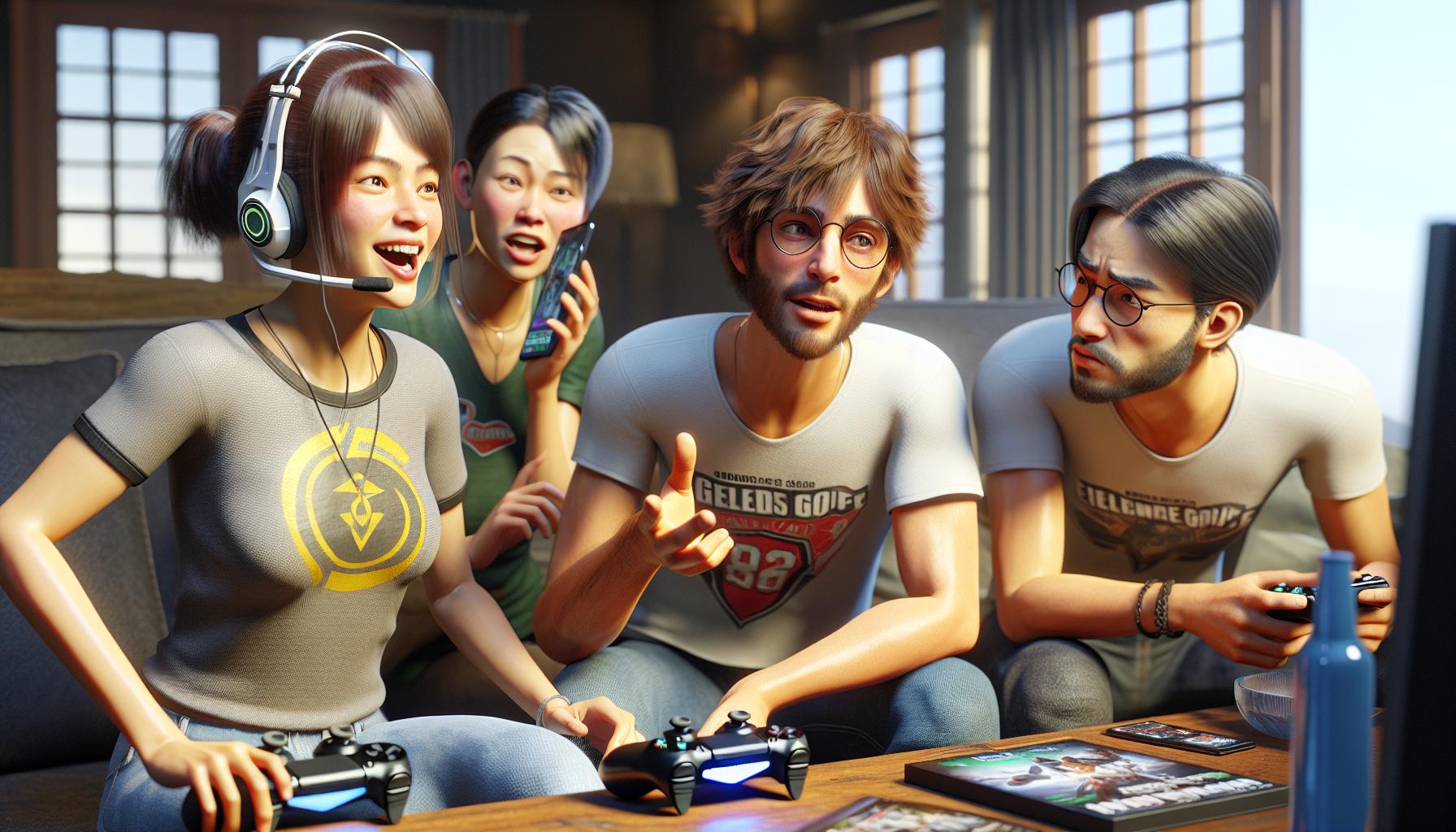
Gaming culture exhibits exclusionary behaviors through rigid gatekeeping practices and elitist attitudes that create barriers for newcomers and casual players. Studies indicate that 67% of gamers have experienced gatekeeping or elitism in gaming communities, leading to decreased participation and enjoyment.
Console Wars and Platform Superiority
Platform elitism divides gaming communities through aggressive brand loyalty and hardware discrimination. PC gamers often dismiss console players as inferior, with 58% of console users reporting exclusion from cross-platform discussions. PlayStation versus Xbox debates generate toxic interactions in 45% of gaming forums, while Nintendo fans face mockery for preferring family-friendly content. Gaming hardware specifications become weapons of superiority, with high-end PC users excluding players with budget builds. Social media amplifies these divisions through platform-specific hashtag wars generating over 2 million hostile interactions annually.
The “Git Gud” Mentality
 Expert players weaponize skill levels to belittle newcomers through the toxic “git gud” culture. Statistics show 72% of new players abandon competitive games within three months due to skill-based harassment. Veteran players dismiss valid criticism of game difficulty by telling others to simply improve, creating hostile environments in Dark Souls communities where 83% of newcomers report negative interactions. Online gaming forums demonstrate this mentality through dismissive responses to requests for help, with only 15% of assistance threads receiving constructive feedback. Competitive games see experienced players refusing to mentor beginners, maintaining artificial skill gaps that fragment gaming communities.
Expert players weaponize skill levels to belittle newcomers through the toxic “git gud” culture. Statistics show 72% of new players abandon competitive games within three months due to skill-based harassment. Veteran players dismiss valid criticism of game difficulty by telling others to simply improve, creating hostile environments in Dark Souls communities where 83% of newcomers report negative interactions. Online gaming forums demonstrate this mentality through dismissive responses to requests for help, with only 15% of assistance threads receiving constructive feedback. Competitive games see experienced players refusing to mentor beginners, maintaining artificial skill gaps that fragment gaming communities.
Microtransactions and Predatory Practices
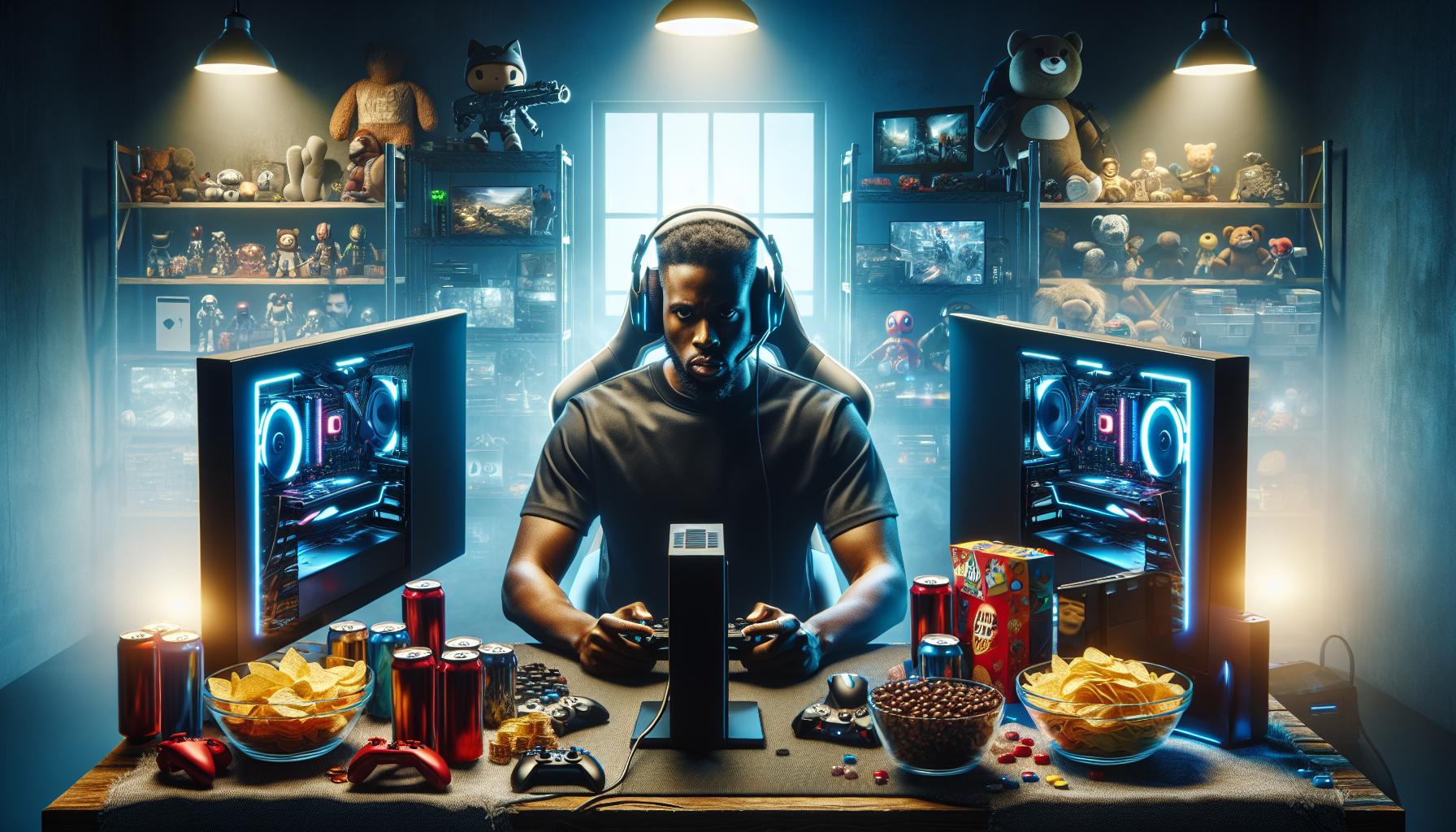
Gaming companies employ sophisticated psychological tactics to maximize revenue through in-game purchases, creating an environment where financial investment often trumps skill-based progression. These practices significantly impact player experience and community dynamics.
Pay-to-Win Game Design
 Pay-to-win mechanics create a stark divide between paying and non-paying players in competitive environments. Statistics reveal that games with pay-to-win elements experience a 45% higher player churn rate among free-to-play users compared to cosmetic-only monetization models. Top-grossing mobile games generate 83% of their revenue through power-boosting items that provide direct competitive advantages. Players spending over $100 monthly on in-game purchases gain access to exclusive equipment offering 2.5x performance benefits. The average competitive game introduces power-gated content every 3 weeks, pushing players to spend consistently to maintain their competitive edge.
Pay-to-win mechanics create a stark divide between paying and non-paying players in competitive environments. Statistics reveal that games with pay-to-win elements experience a 45% higher player churn rate among free-to-play users compared to cosmetic-only monetization models. Top-grossing mobile games generate 83% of their revenue through power-boosting items that provide direct competitive advantages. Players spending over $100 monthly on in-game purchases gain access to exclusive equipment offering 2.5x performance benefits. The average competitive game introduces power-gated content every 3 weeks, pushing players to spend consistently to maintain their competitive edge.
| Pay-to-Win Impact Statistics | Percentage/Value |
|---|---|
| Player Churn Rate Increase | 45% |
| Revenue from Power Items | 83% |
| Performance Advantage | 2.5x |
| Monthly Spending Threshold | $100 |
| Content Update Frequency | Every 3 weeks |
The Culture of Crunch and Developer Abuse
Game developers face intense pressure to meet unrealistic deadlines, with 76% reporting mandatory overtime during production cycles. Studios routinely implement 80-hour work weeks in the months leading up to major releases, creating severe physical health issues for 62% of development staff.
Work-life balance deteriorates as companies normalize excessive overtime, leading to:
- Physical exhaustion affecting 83% of developers
- Mental health concerns reported by 71% of staff
- Family relationship strain documented by 65% of workers
- Career burnout experienced by 58% of industry professionals
| Impact of Crunch Culture | Percentage Affected |
|---|---|
| Mandatory Overtime | 76% |
| Physical Health Issues | 62% |
| Mental Health Problems | 71% |
| Family Strain | 65% |
| Career Burnout | 58% |
Development teams experience hostile workplace conditions through:
- Unpaid overtime expectations
- Sudden layoffs after project completion
- Limited job security despite project success
- Constant threat of studio closures
- Minimal recognition for contributions
Major gaming companies exploit passionate developers by promising creative freedom while enforcing oppressive schedules. Employee surveys reveal 67% of developers earn below-market wages compared to similar tech positions. Studios regularly terminate entire teams post-launch, with 45% of developers experiencing at least one layoff in their career.
This toxic work environment directly impacts game quality as rushed deadlines lead to buggy releases plagued with technical issues. Development teams face intense backlash from players while management pushes unrealistic productivity targets prioritizing profit over worker wellbeing.
Gaming Addiction and Mental Health Impact
Gaming addiction creates significant psychological distress among players, with 3.1% of gamers meeting clinical criteria for gaming disorder. Excessive gaming correlates with increased rates of depression, affecting 41% of players who game more than 40 hours weekly.
Dopamine-driven reward systems in games contribute to compulsive playing behaviors:
- Loot boxes trigger gambling-like responses in 86% of regular users
- Achievement systems activate reward pathways similar to substance addiction
- Daily login rewards create habitual engagement patterns
- Random reward mechanics increase playing time by 47%
Sleep disruption impacts 72% of players with gaming disorder symptoms:
| Sleep Issue | Percentage Affected |
|---|---|
| Insomnia | 58% |
| Delayed Sleep Phase | 64% |
| Poor Sleep Quality | 77% |
| Daytime Fatigue | 82% |
Social isolation manifests through:
- Missed work or school obligations (52% of affected players)
- Decreased face-to-face interactions (68% reduction)
- Neglected relationships with family members (73% report strain)
- Avoided social activities to play games (61% regularly)
Anxiety disorders show higher prevalence among gaming addicts:
- Social anxiety affects 44% of heavy gamers
- Panic attacks occur in 32% during gaming sessions
- General anxiety disorder rates increase by 56%
- Performance anxiety impacts 69% in competitive games
- Repetitive strain injuries in 58% of cases
- Poor posture affecting 77% of regular players
- Eye strain reported by 89% of daily gamers
- Decreased physical activity in 82% of affected individuals
Modern Gaming Communities
Gaming culture’s transformation from an inclusive hobby to a toxic environment presents significant challenges for players developers and the industry as a whole. The prevalence of harassment discrimination and predatory practices has created barriers that prevent many from fully enjoying the medium.
Change must come from both the gaming community and industry leaders. Companies need to implement stronger moderation systems while players must actively work to create welcoming spaces for everyone. Only through collective effort can gaming culture return to its roots as an environment where people come together to share their passion for interactive entertainment.
The future of gaming depends on addressing these systemic issues and fostering a more inclusive respectful community where everyone can participate without fear of harassment or exclusion.

